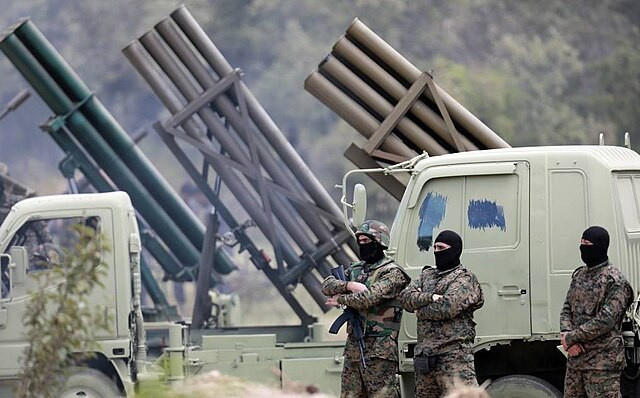Tensions along the Lebanese-Israeli border reached new heights this week as Israel and Hezbollah traded intense fire in the wake of Israel's heaviest airstrikes in nearly a year. The escalation follows explosive attacks on Hezbollah communication devices that left 37 dead and thousands wounded in Lebanon, sparking concerns of a broader conflict between the two foes.
On Thursday, Israel's military announced that it had struck more than 100 Hezbollah rocket launchers and infrastructure sites in southern Lebanon, in what security sources described as one of the largest assaults since the conflict reignited last October. These launchers, according to Israeli authorities, were set to fire rockets into Israeli territory, heightening the already dangerous situation along the border.
Hezbollah responded by launching guided missiles at Israeli military positions in the northern town of Metula, a frequent target for the Iran-backed group. While no Israeli casualties were immediately reported, Israeli citizens in several northern towns were instructed to stay near shelters as the fighting continued.
The exchange of fire follows a shocking operation earlier this week that saw thousands of pagers and walkie-talkies used by Hezbollah operatives explode almost simultaneously across Lebanon. The blasts, which killed at least 37 people and injured nearly 3,000, have left the country reeling. According to Lebanese sources, the batteries in the devices were rigged with a highly explosive compound known as PETN, making them virtually undetectable until they detonated.
In response to the explosive attacks, Hezbollah leader Hassan Nasrallah vowed revenge, calling Israel's actions a "declaration of war." While Nasrallah did not specify how Hezbollah would retaliate, he warned that the group would continue its operations against Israel until the violence in Gaza subsides. "The enemy has crossed all red lines," Nasrallah said in a televised address, as Israeli warplanes flew over Beirut, causing sonic booms that rattled the city's residents.
The United Nations Interim Force in Lebanon (UNIFIL) urged both sides to step back from further escalation. "We are concerned at the increased intensification of hostilities across the Blue Line and urge all actors to immediately de-escalate," said UNIFIL spokesperson Andrea Tenenti, referring to the border that separates Lebanon from Israel.
Despite these calls, both sides appear poised for continued conflict. Israeli Defense Minister Yoav Gallant stated that Israel would keep up its military campaign until it can ensure the safety of its northern communities. "As time goes by, Hezbollah will pay an increasing price," Gallant warned. He also emphasized that Israel's goal is to bring stability back to the northern region, where tens of thousands of Israelis have been displaced by ongoing rocket fire.
The year-long conflict, which began last October, has claimed hundreds of lives on both sides. More than 460 Hezbollah fighters and 170 Lebanese civilians have died in the fighting, while in Israel, 52 people-half of them civilians-have been killed. As the hostilities intensify, fears of a wider regional conflict continue to mount, with the U.S. and other global powers calling for restraint.
"We will continue to stand by Israel's right to defend itself, but we don't want to see any party escalate this conflict," said U.S. State Department spokesperson Matthew Miller during a news briefing. The United Nations Security Council is expected to meet later on Friday to discuss the situation and seek a diplomatic solution.
As tensions simmer, questions remain over how Israel managed to orchestrate such a widespread attack on Hezbollah's communications network. Reports have surfaced linking the rigged devices to manufacturers in Taiwan and Europe, but both Taiwanese and Bulgarian officials have denied involvement. The explosive devices, which targeted thousands of Hezbollah operatives simultaneously, have left the Lebanese group reeling and may mark a new phase in the ongoing conflict.




